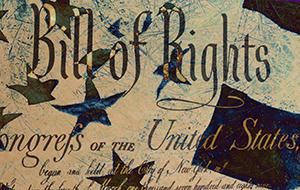The Salesperson's Bill of Rights II
The Salesperson's Bill of Rights II
July 7, 2025
Last week, as a way to celebrate our 249th Independence Day in the United States, we created and shared the first half of what we call The Salesperson’s Bill of Rights. The response was overwhelming!
Please enjoy the second set of rights for salespeople.
You have the right to ask about deadlines.
Asking about your customer’s timeframe helps you anticipate delivery options early in the process. It enables you to forecast. The sooner the customer wants to move forward, the more likely they are to do so. Usually, the sooner the customer wants to move, the more amenable they are to embracing change, allowing you the opportunity to ask what may impede the progress of this business. Most importantly, however, knowing the customer’s time frame may provide a way for you to establish a sense of urgency in your customer’s mind.You have the right to ask for referrals.
Not only do you have the right, but you also have the responsibility to ask for referrals. There is no better way to acquire leads than to ask your current customers for referrals. They may not always have a name for you, but when they do, it’s usually golden. “Who else might be interested?” is the million-dollar question, because if you ask this throughout your career in sales, you will probably earn at least a million more dollars.You have the right to contact other people in the company.
While it’s true that people buy from people, it’s also true that companies buy from companies. Salespeople often find themselves stuck working with one person in a company who refuses to make a purchase. Reaching out to others in the company is a foolproof way to minimize the impact of one person’s resistance. As one of our readers said last week, you are not going around someone; you are triangulating.You have the right to say no.
Another one of our readers from last week believes that not only do you have the right, but you also have the obligation, to reject a client when your services are inappropriate for that client or vice versa. Learning how to say no is tough but necessary for a smooth-running business. One of the most significant differences between rookie salespeople and established, successful ones is that the successful ones know when and how to say no. In my own company, I knew I had made it when I rejected a client for the first time. Sometimes, you have to walk away from opportunities that are not the best fit for your customer, you, or your company. The health of your business and company comes first for both you and your customers.You have the right to a good reputation if you’ve earned it.
Customers are not necessarily going to make the connection about how you and your company add value. You need to be able to articulate your case and address the question that all customers have. “What’s in it for me?” You need to do this clearly and concisely.

